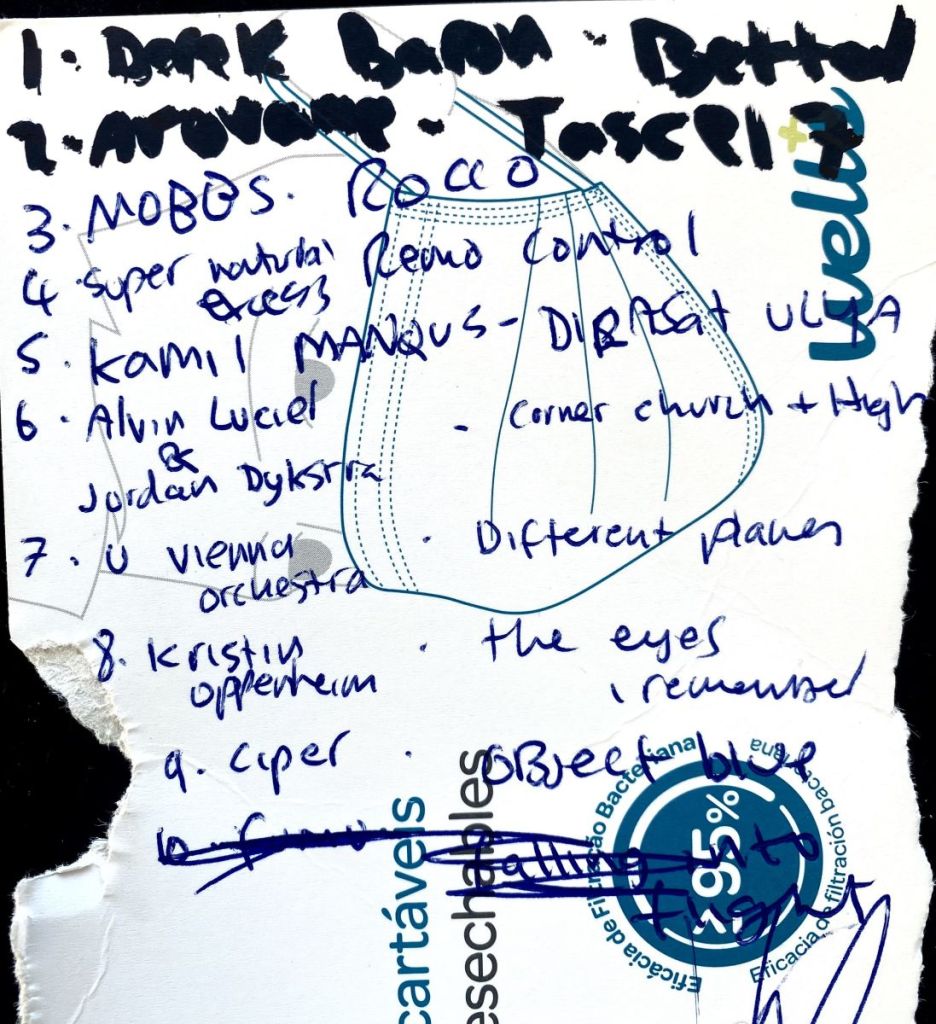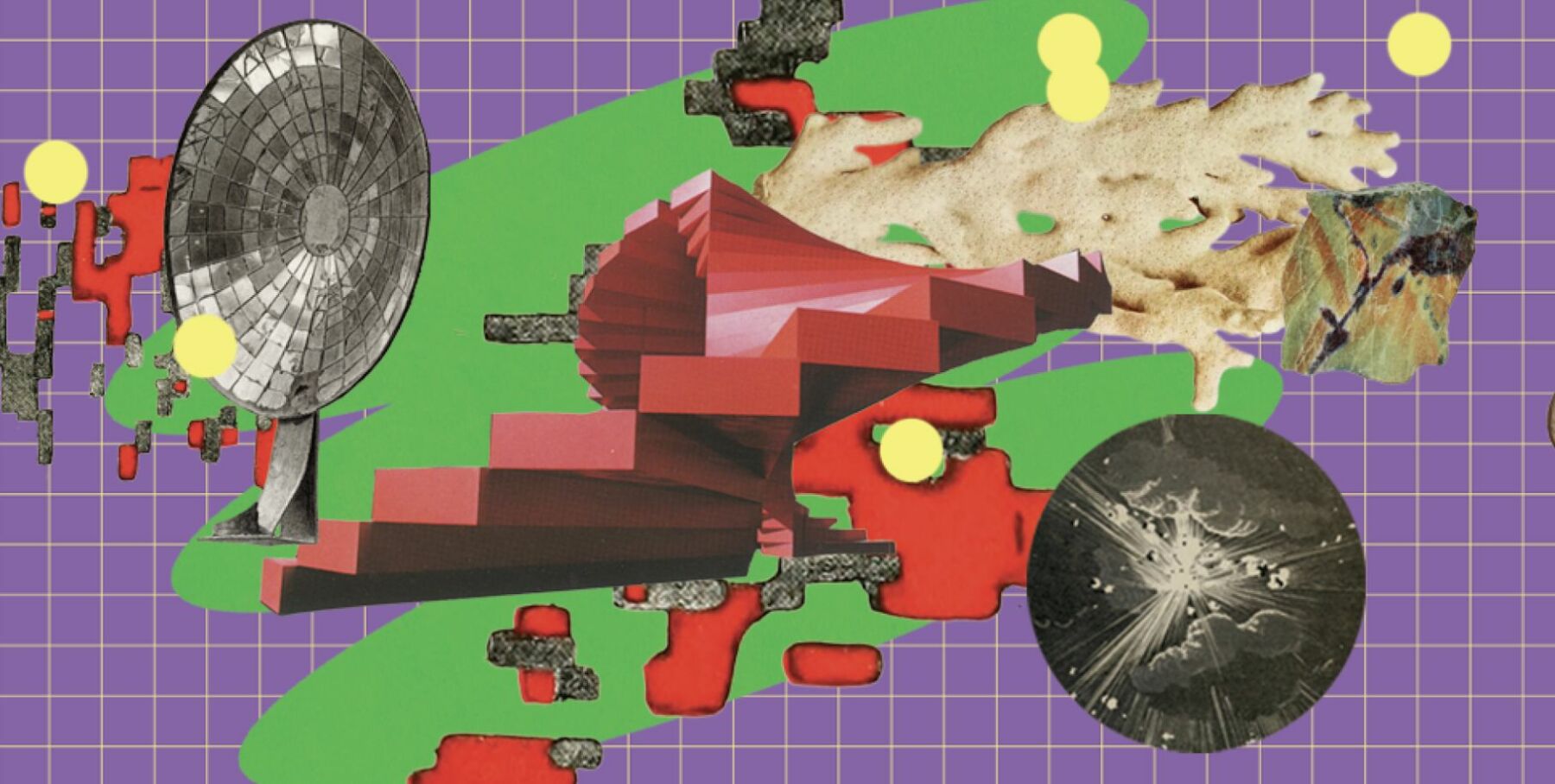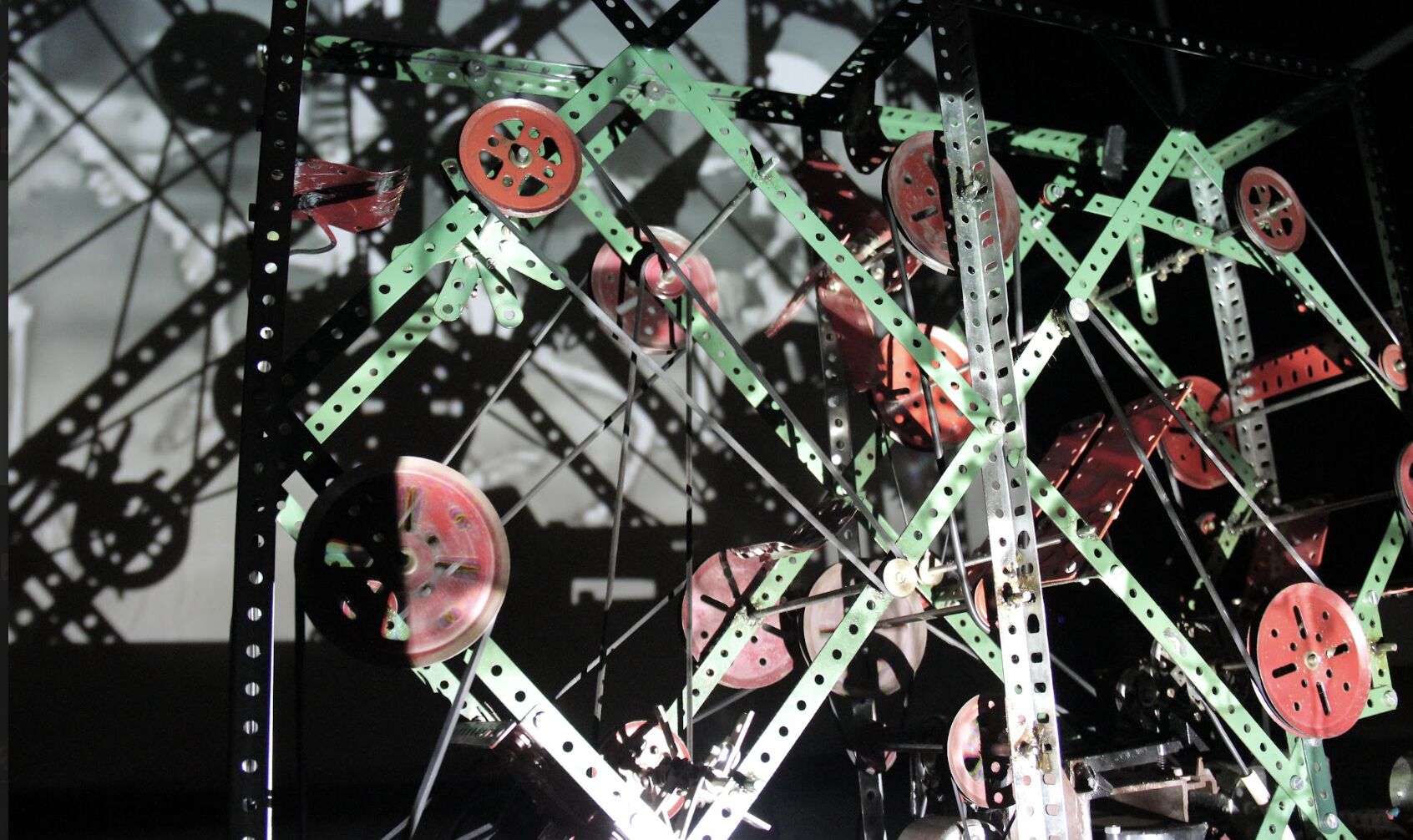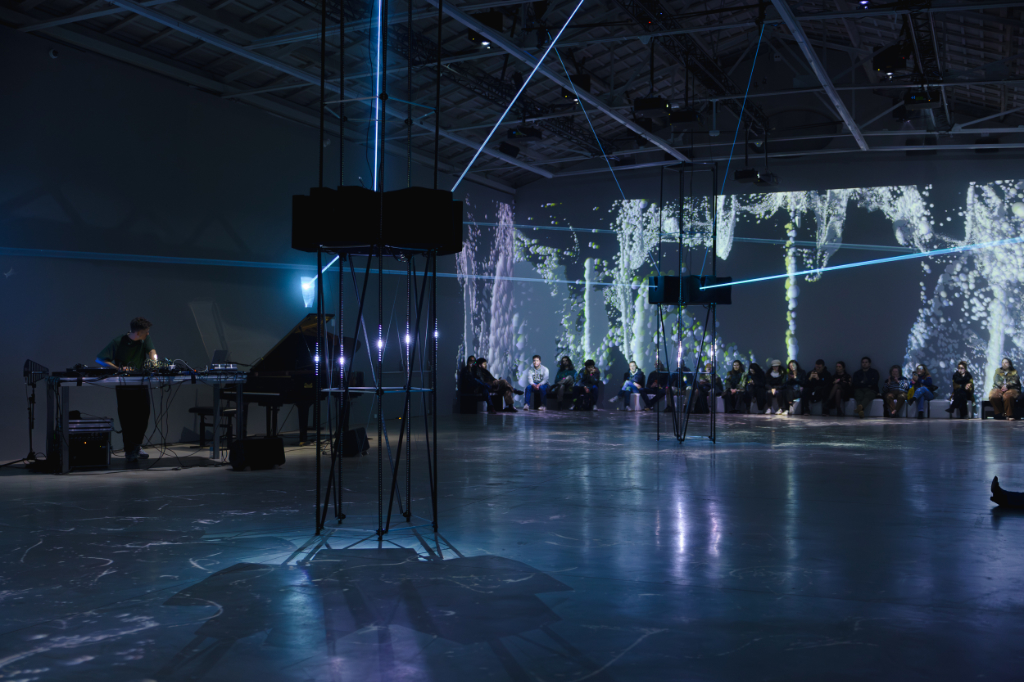Text by CLOT Magazine
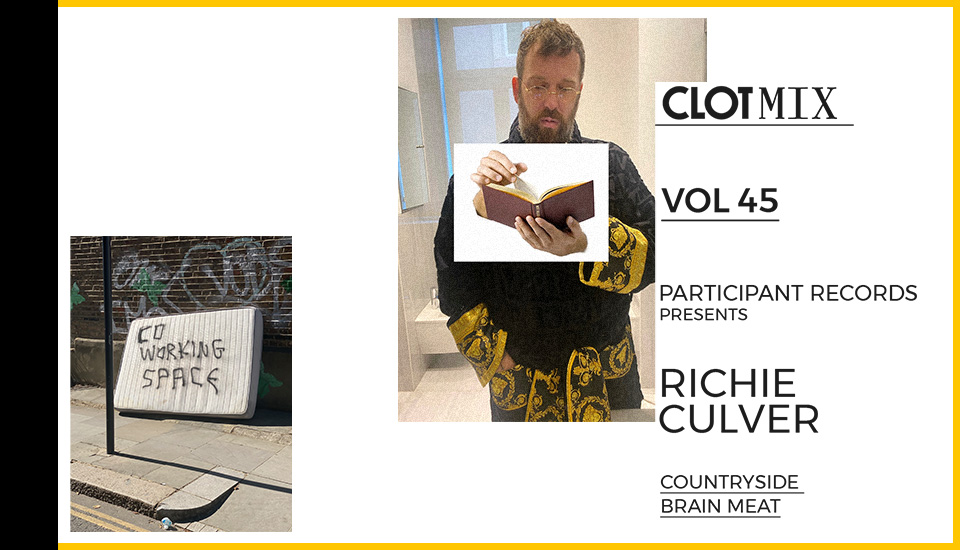
Next on our Mixtape series is by the one and only Richie Culver. We published an interview with him a few weeks back, and he generously offered us a mixtape. A selection of drifty, suggestive tracks of artists he’s been recently listening to and interested in, as much as the perfect companion for the entertaining read that his interview is.
Culver has been this semi-outsider, self-taught artist figure in the UK and a few capitals scattered around the world, gaining recognition with his pungent view of “existence” and observation of human behaviour (a lot of it autobiographical).
Conceptual -but at the same time comfortingly direct- and full of a minimalistic force, a big part of Culver’s work lies in his relationship with technology, the advent of social media, and how antagonistic forces around these affect human interaction, new forms of linguistics and communication, and new levels of cultural symbols, signs and signifiers.
A frustrated musician, as he frequently recalls himself (and who isn’t, I may dare to say…), music and sound is where he is keeping a lot of his artistic focus at the moment. And he seems to be as prolific as with the many different types of media and art forms he’s also renowned for.
He’ll be releasing his first solo album in the following months; he’s also very recently released an EP in collaboration with electronic musician Pavel Milyukov (aka Buttechno), that is receiving a lot of attention and praise as his preceding Blackhaine collab ‘DID U COME YET / I’M NOT GONNA CUM. Texts and spoken words have long been central to Culver’s practice, and in his audio pieces, these sometimes become the starting point for his compositions. Others are recorded noises or recited words.
Culver also puts his energy into his record label (and creative studio) Participant, which he runs with filmmaker William Markarian-Martin. The label is where he’s been releasing his own material (including a compilation on tape format of his “Full musical archive 1999-2019″, and more recently, releasing other artists’ music, like the phenomenal DRONE OPERATØR latest release.
About the mixtape, and especially when asked about the title, Culver shares that he travels to the English countryside often with his family:
When I go there, I give my phone to someone, and they give it back to me when we arrive home. The mix is a reference to my brain finding itself again. I’m not sure my brain is operating healthily when I’m in London. We all know it’s the new normal now with phones etc… But having a week or a few days with no screens or laptops is the most freeing thing ever.
I feel I owe it to myself to let my brain meat thaw in the countryside every now and then (and once again, don’t we all do, don’t we all? 🙂
Even though there may be some more obvious references, for any reason, your more recent work keeps making me think of Mira Schendel’s (coming from a very different context but still…), where through philosophy, concrete poetry and semiotics of text (using different types of media) she explored a broader visual metaphor for human existence. Trying not to end up making a too “conceptual/wanky” question about it, thinking that the visual representation of language and communication (and the many layers of cultural signifiers) is quite central to your practice, what is it about it that attracts you to express your creativity? And how are these ideas conveyed in the different media you use (i.e. sculpture, installation, painting…)?
It is a constant push and pull regarding over-stimulating text and to over-conceptualise my work.
The long and short of it is that my work needs it. Everyone does.
If it’s autobiographical, as much of my work is. Why do I need to over-conceptualise that? I was born, and I will die kinda thing. But it is what it is.
I have been working on new paintings recently that are much more physical.
When I work like this, it’s the curator or gallery’s job to intellectualise it as I am merely a middleman between my thoughts and the canvas. The fact that I add text gives it a sense of human life.
I can talk all day about why and how I do things. But sometimes it’s just nice to paint.
With my music, it’s slightly easier as I am telling a disjointed story, and people can join the dots and ask questions regarding production, etc.
Talking about your music productions, which you say you are much focused on at the moment, and continuing with the discussion that your work (also your music) focuses on language (in this case, spoken word/rap…)… What is your creative process like for your compositions? Do you start with an existing text or the other way round, with some notes or synths lines? How much does the wording rhythm inform the music?
It always starts with “poetry” I can’t really think of a better word to use.
Titles for paintings in my notes are always a starting point also. Then I will recite them into my phone on voice notes, which builds from there. Usually, super outsider stories and observations. Bleak seaside Poetry, as Henry Bruce-Jones beautifully quoted.
The production side is always different. Working with recorded noises and condensing them until they are unrecognisable and begin to have a pulse and mutate to go and live on their own. Fleeing the nest.
I play the piano also. Not great, but I work with what I have.
I like using instruments to the least of their capacity and possibly the best of my ability. In the DIY sense of things, it’s always an interesting yet unsteady road to walk.
It’s really interesting to see a language form working this way.
There’s a sound forming now.
And in collaborations, such as the one with Blackhaine, where the other artists may bring about the spoken/rap component, does your process change? And if so, in what ways?
Collaboration-wise, it always differs depending on what everyone brings to the table. The Blackhaine work was totally conceptual regarding my input.
The Pavel Mikyakov collaboration was slightly different as we went back and forth somewhat.
And what are your inspirations for your sound productions these days? What have you been most excited about recently?
Étant Donnés, John Duncan, Derek Baron, Moor Mother, DRONE OPERATØR, 3Ddancer, MOBBS, Hermann Nitsch, Genesis P-Orridge, Frank Butters, Kristin Oppenheim. Nuno Loureiro, Aho Ssan.
What is your relationship with technology these days? And how do you cope with technology (screen/digital) overload?
I struggle with technology in general. We have a strict no screens rule with my three kids.
Tracklist:
